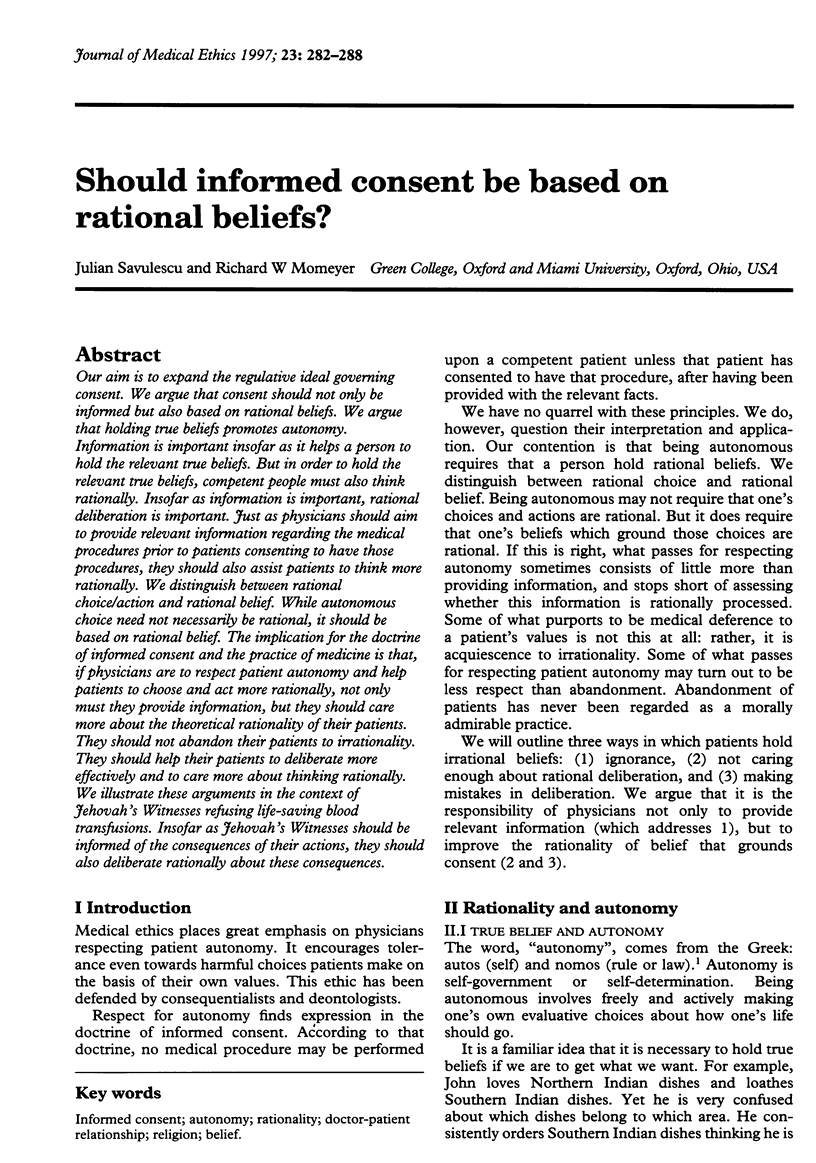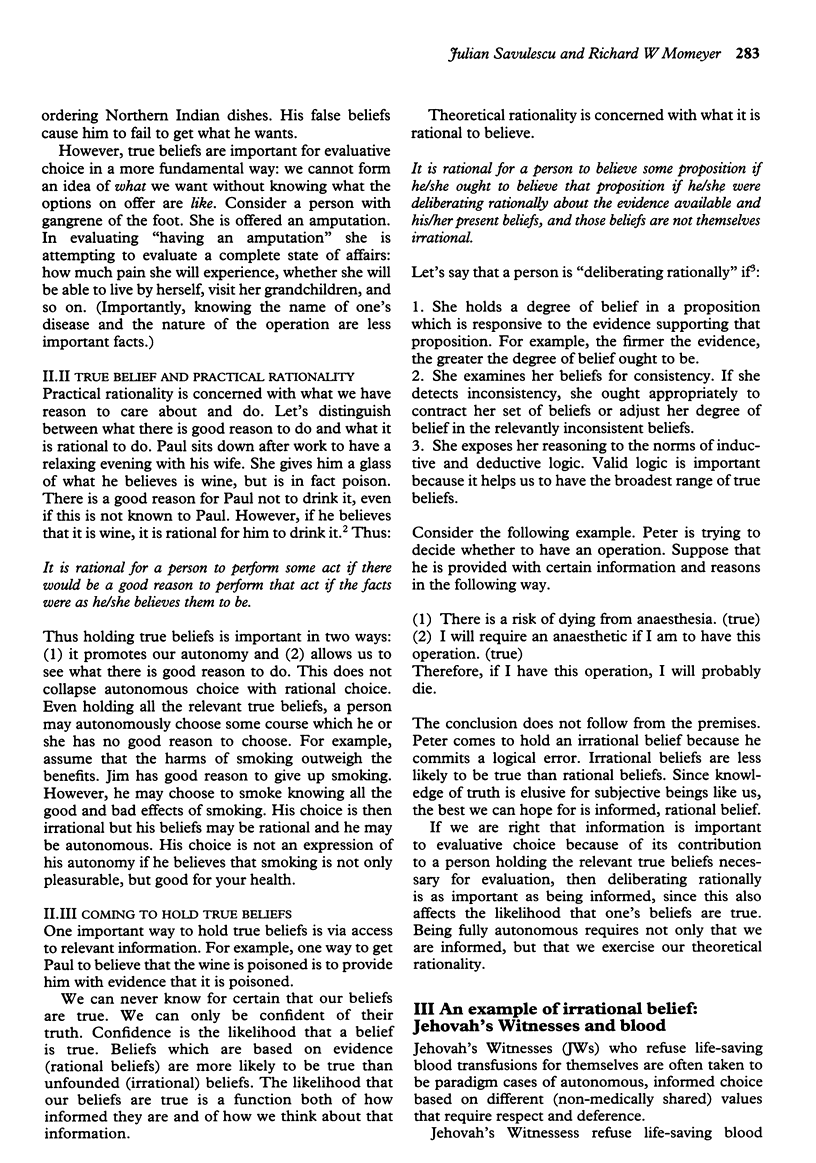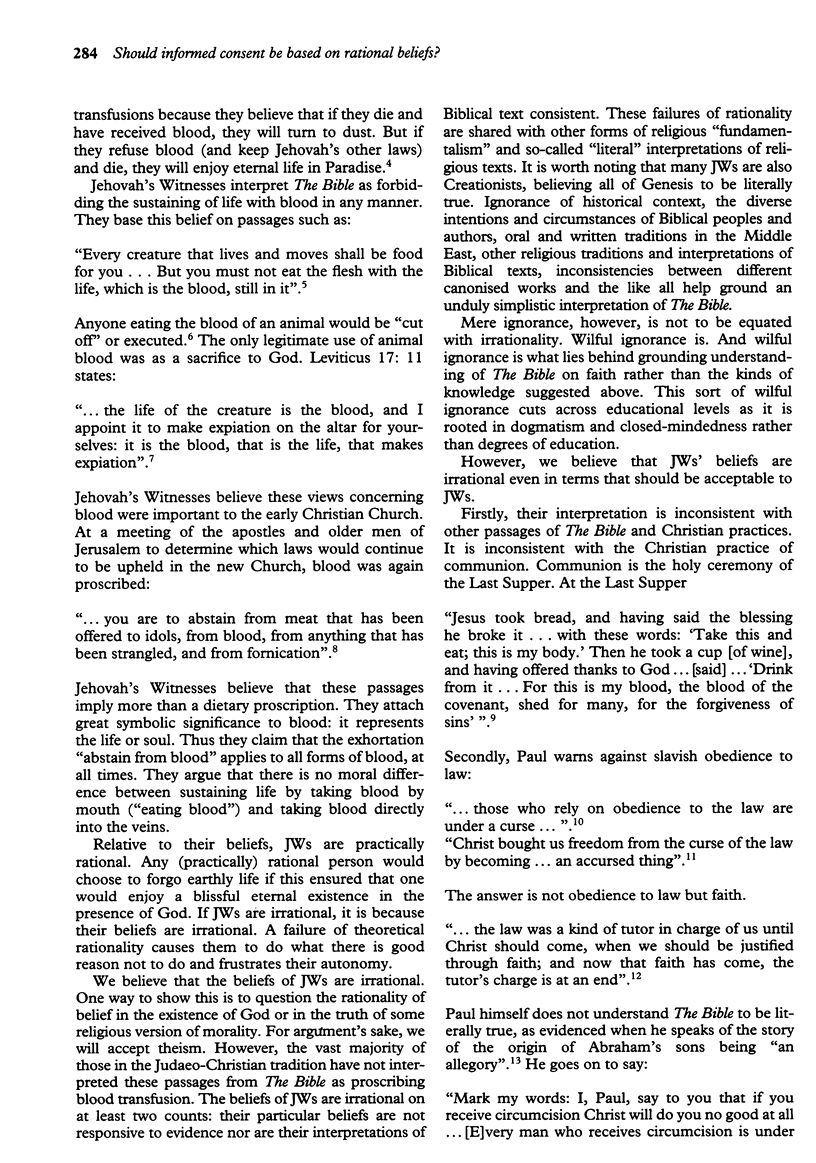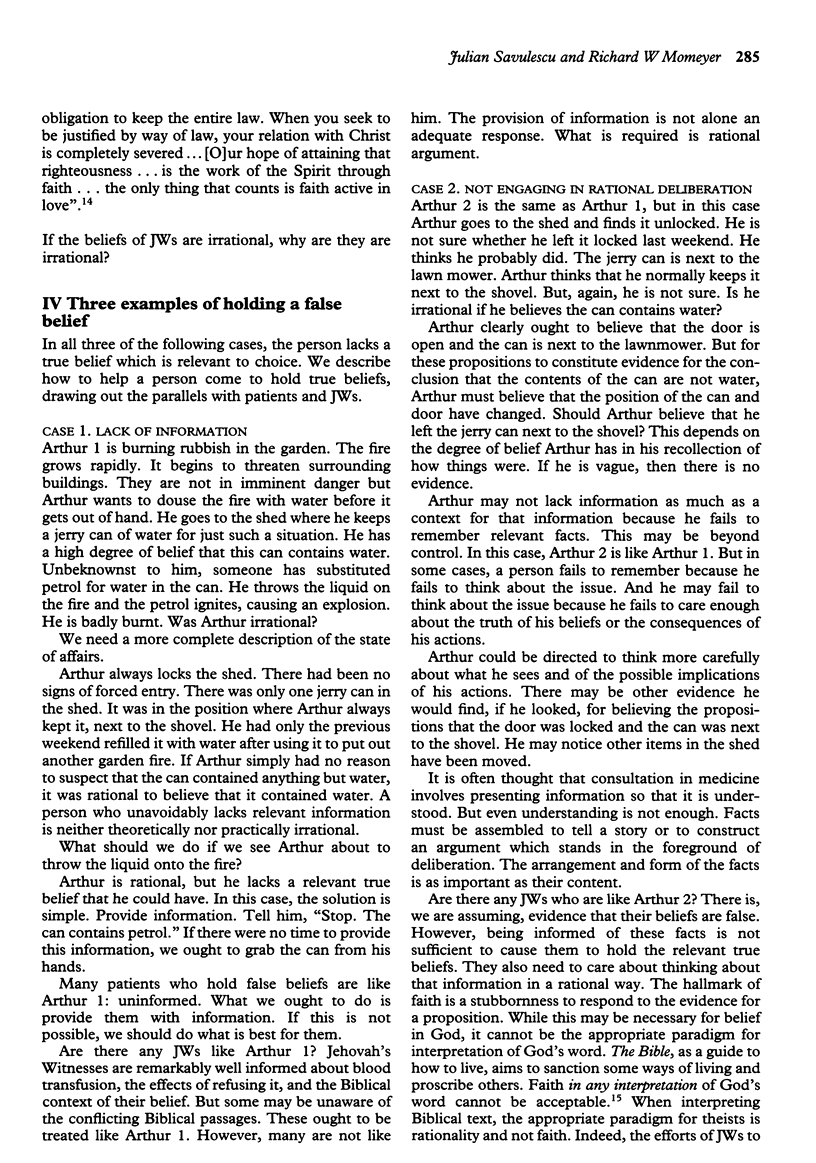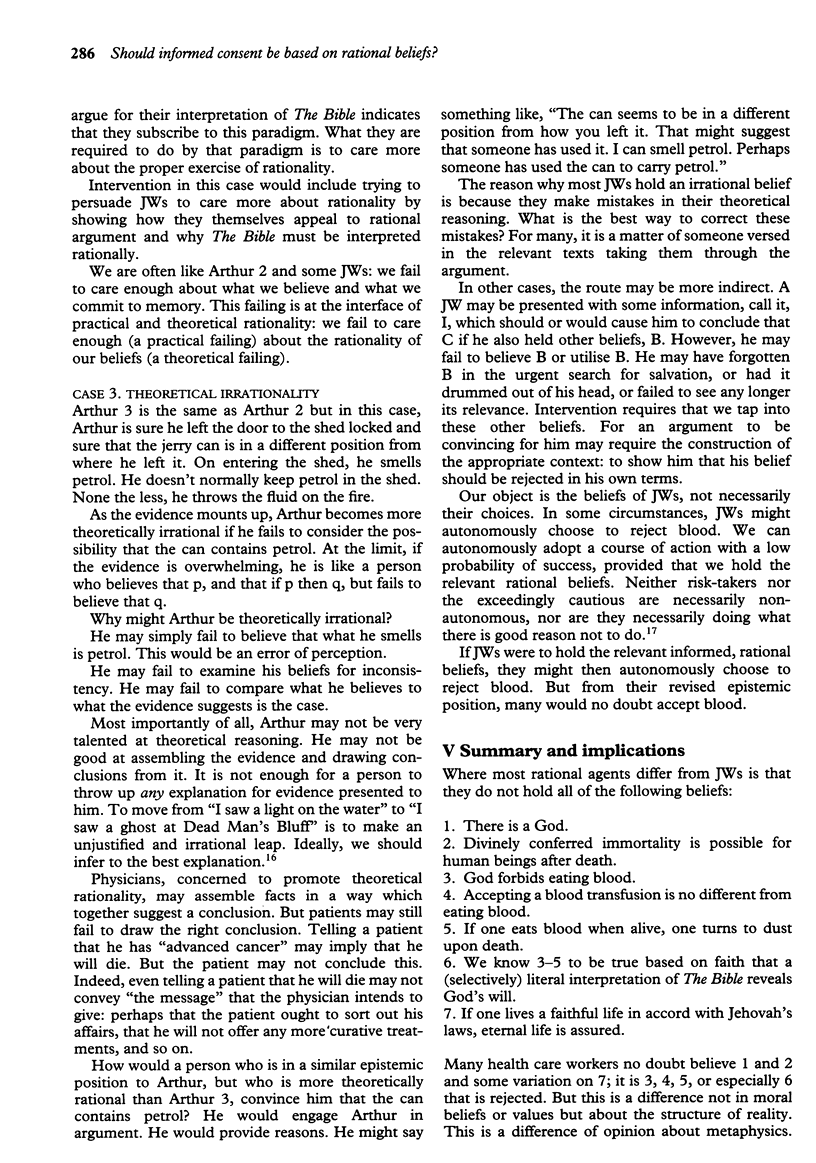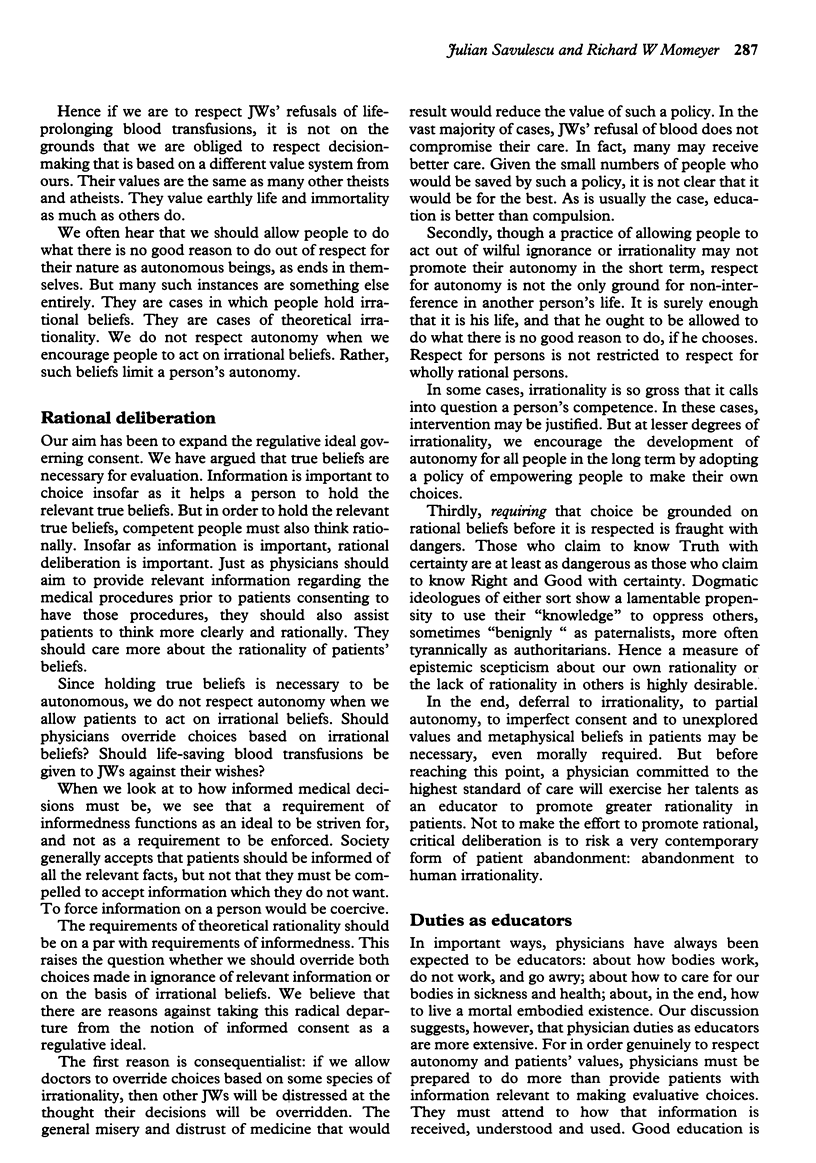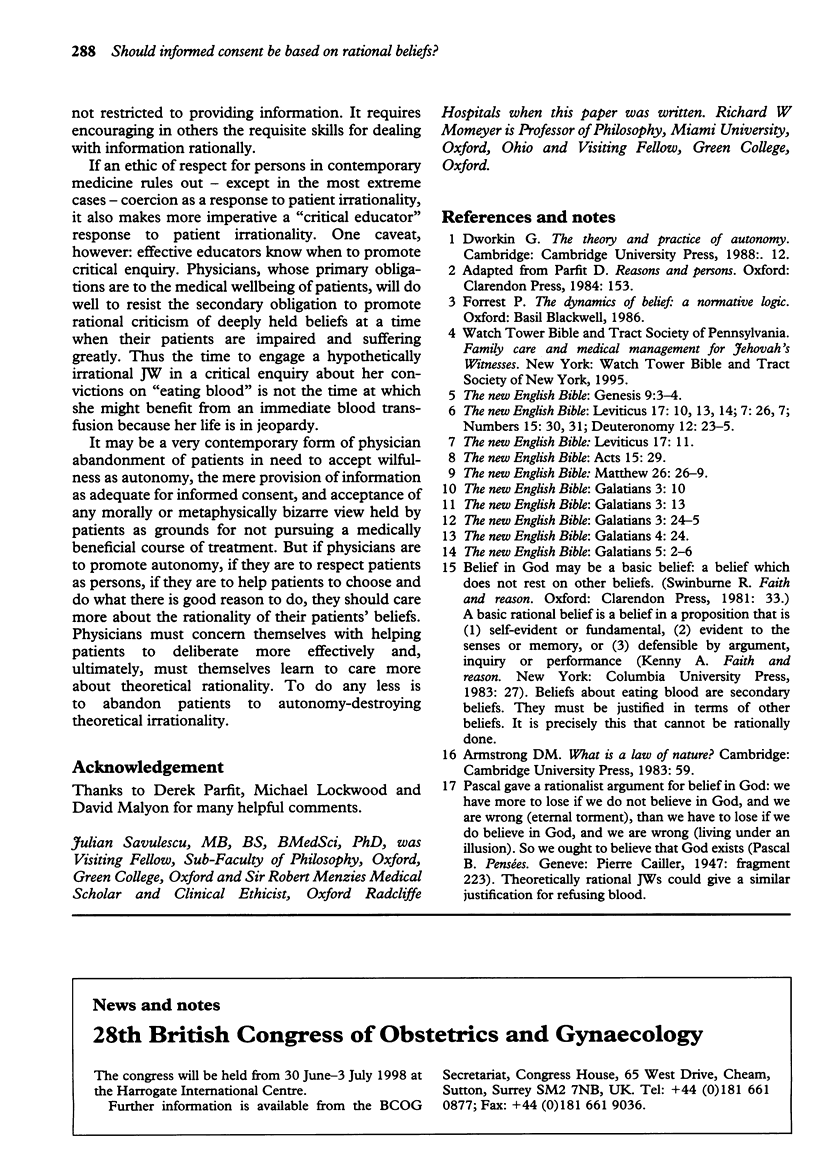Abstract
Our aim is to expand the regulative ideal governing consent. We argue that consent should not only be informed but also based on rational beliefs. We argue that holding true beliefs promotes autonomy. Information is important insofar as it helps a person to hold the relevant true beliefs. But in order to hold the relevant true beliefs, competent people must also think rationally. Insofar as information is important, rational deliberation is important. Just as physicians should aim to provide relevant information regarding the medical procedures prior to patients consenting to have those procedures, they should also assist patients to think more rationally. We distinguish between rational choice/action and rational belief. While autonomous choice need not necessarily be rational, it should be based on rational belief. The implication for the doctrine of informed consent and the practice of medicine is that, if physicians are to respect patient autonomy and help patients to choose and act more rationally, not only must they provide information, but they should care more about the theoretical rationality of their patients. They should not abandon their patients to irrationality. They should help their patients to deliberate more effectively and to care more about thinking rationally. We illustrate these arguments in the context of Jehovah's Witnesses refusing life-saving blood transfusions. Insofar as Jehovah's Witnesses should be informed of the consequences of their actions, they should also deliberate rationally about these consequences.
Full text
PDF